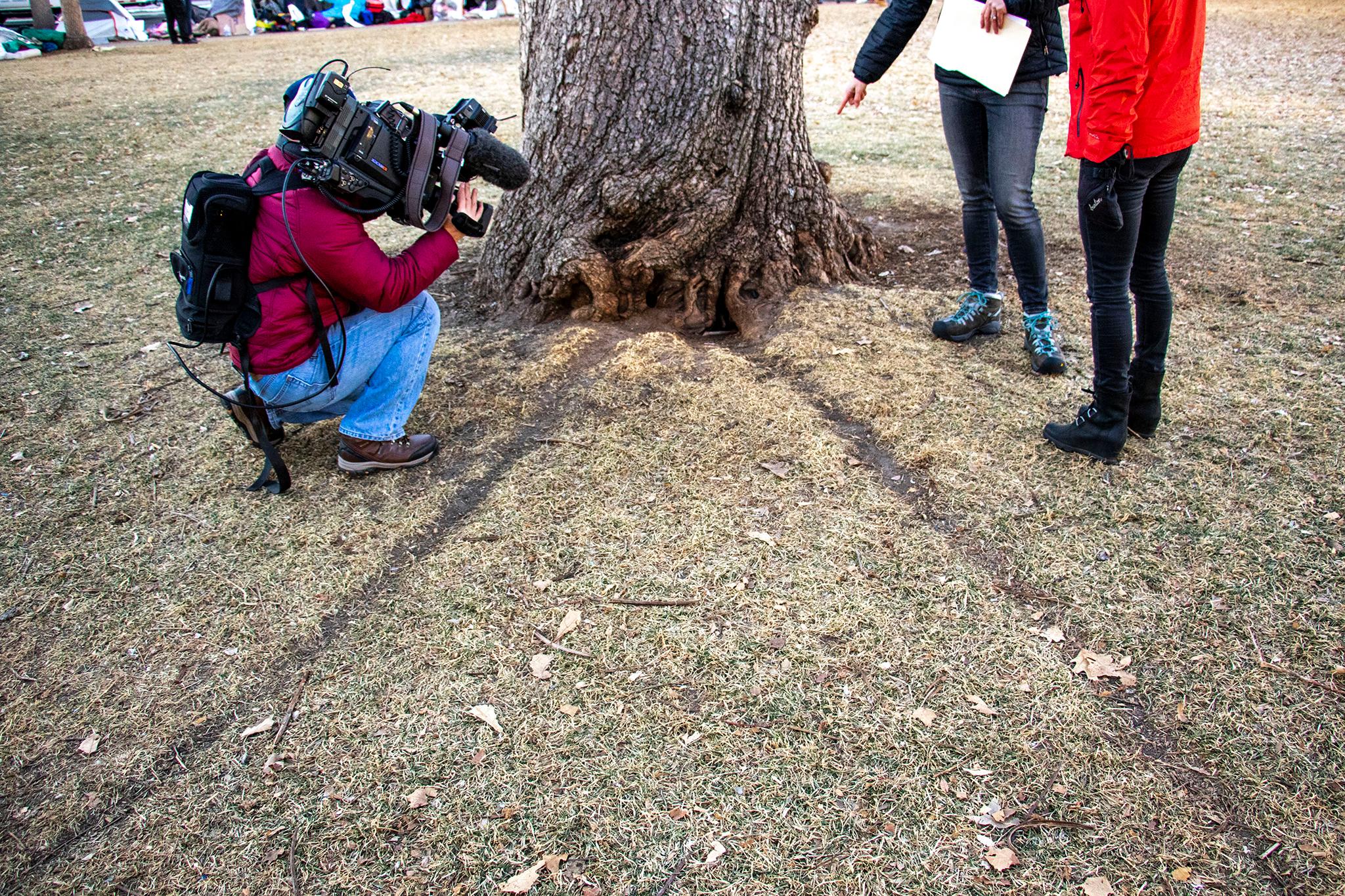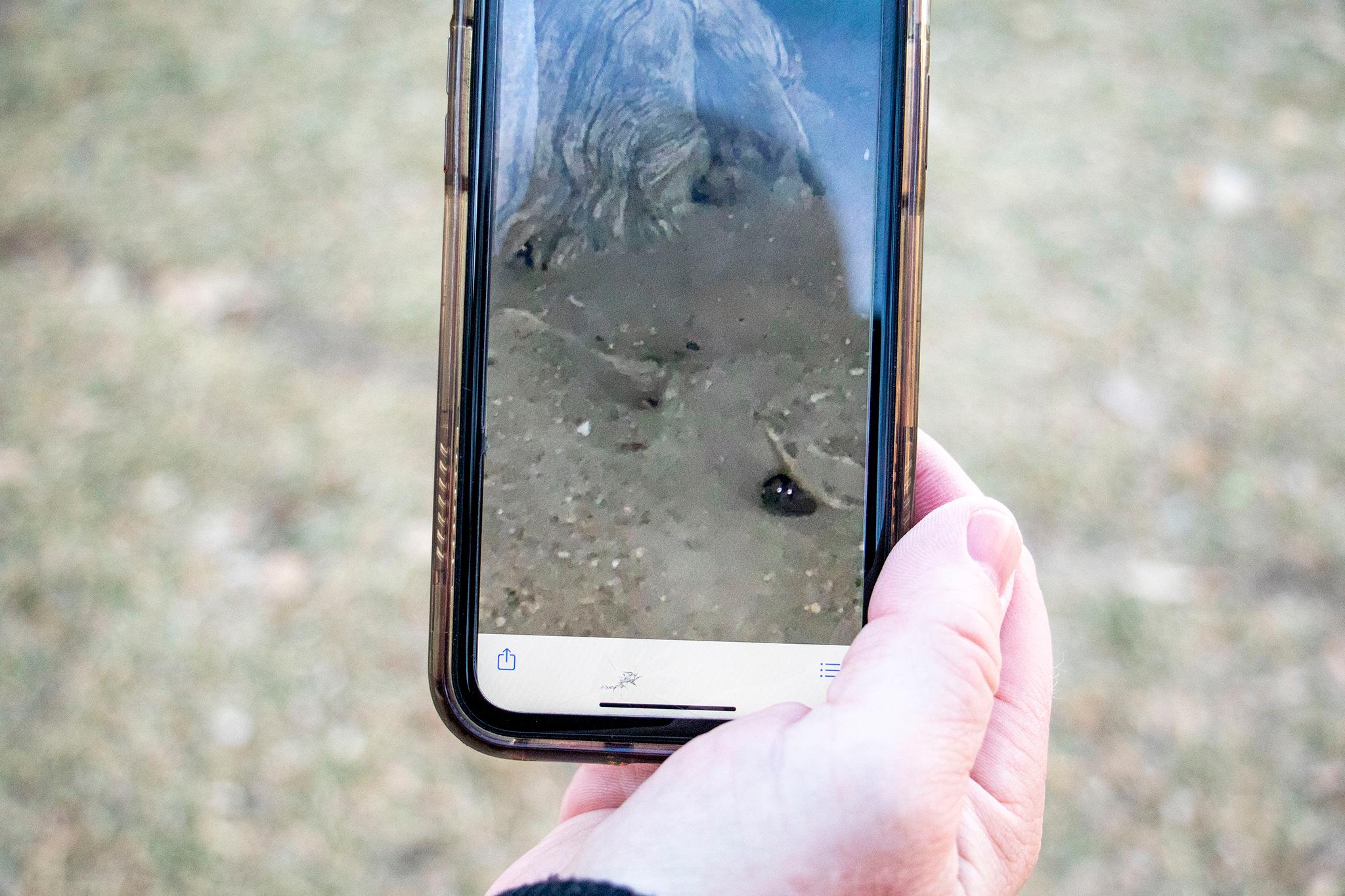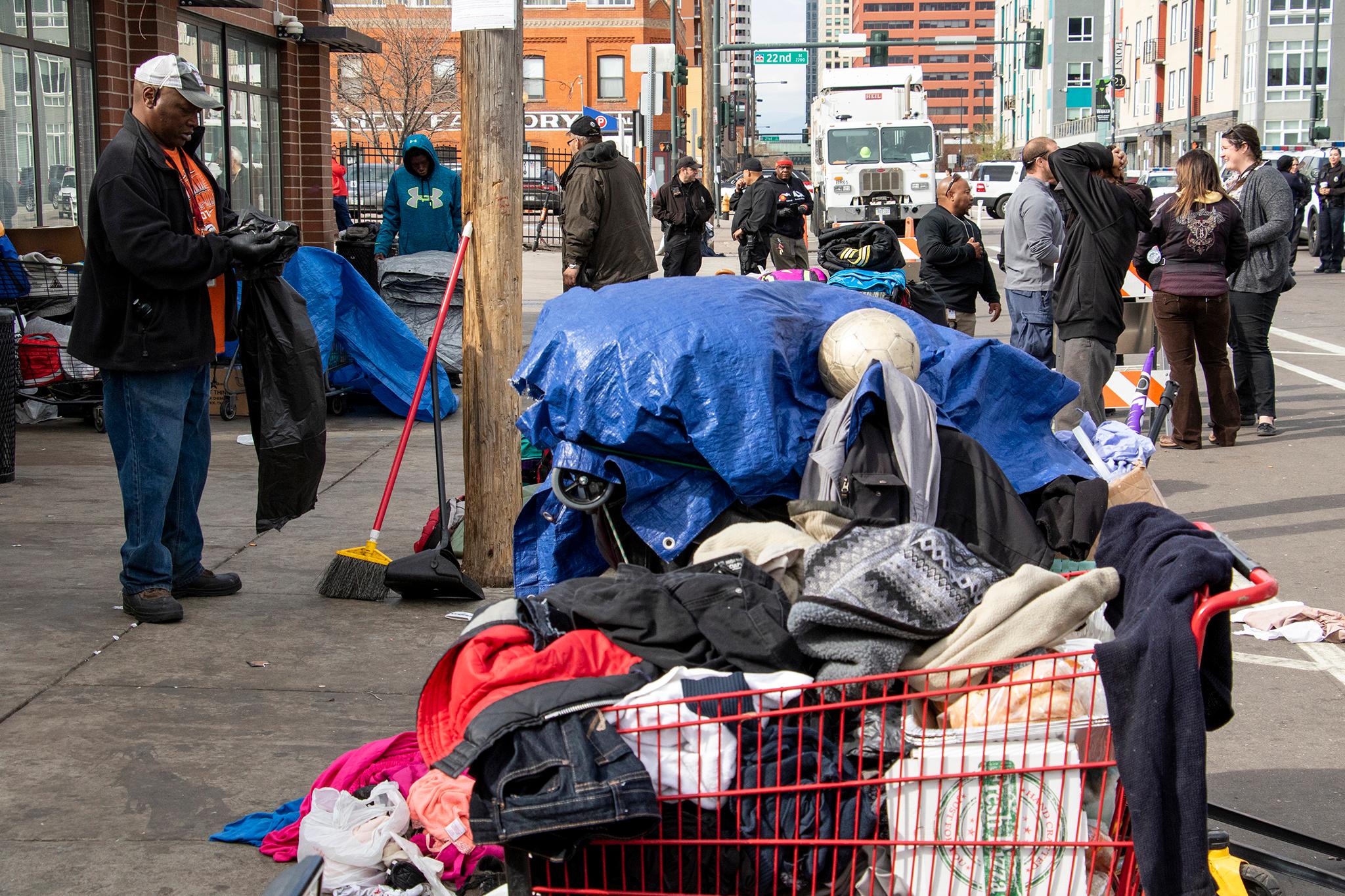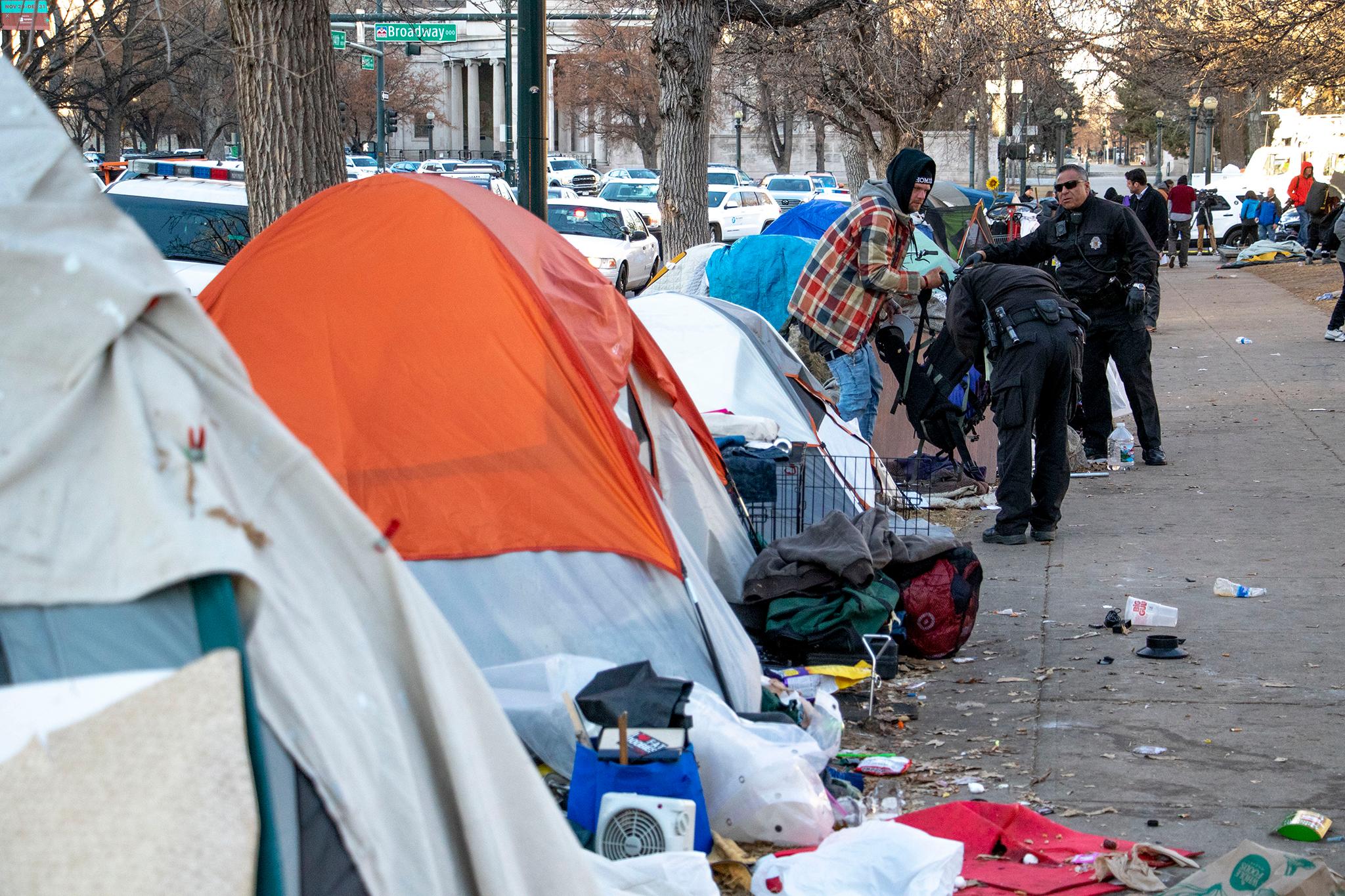When word spread that a cleanup was planned in the park west of the state Capitol, at least one of the people affected thought he would have seven days to pack up his belongings and find a new camp site.
But seven day's notice is required when Denver's Department of Transportation and Infrastructure (the old Department of Public Works) is planning a large-scale removal of trash or belongings from public areas, not when Denver's Department of Public Health and Environment says it's an urgent matter of public health. The health department cited concerns about rats when it closed Lincoln Memorial Park between the Capitol and Civic Center Park on Wednesday.
"We're stewards of the environment and public health," said Danica Lee, director of public health inspections for the department. "When conditions deteriorate, it's our responsibility to intervene."

Meanwhile, curfews allow Denver Parks and Recreation to clear parks overnight. All or parts of parks are sometimes closed 24-7 for short periods to allow new grass to grow or repairs to be made. And don't forget trespassing laws or the city ordinance making it illegal to sit or lie overnight along the 16th Street Mall and other parts of the Downtown Denver Business Improvement District.
"As we have always said for years ... the camping ban is not the only law that criminalizes acts of survival in public space," said Denver Homeless Out Loud member Terese Howard.
A local judge found the urban camping ban unconstitutional in December, reasoning that Denver's shelter system was inadequate to the point that prohibiting camping in section 38-86.2 of the municipal code amounted to cruel and unusual punishment.
That section, titled "unauthorized camping on public or private property prohibited" and adopted by the Denver City Council in 2012, defines camping as residing or dwelling "temporarily in a place, with shelter." "Shelter" means any tent, tarp, lean-to, sleeping bag, bedroll, blankets, or "any form of cover or protection from the elements other than clothing," the law states.
Denver Homeless Out Loud's Howard said she doesn't like the term camping, which brings to mind s'mores and hot dogs.
"We're not camping," she said. "We're surviving."
Judge Johnny Barajas cited trial testimony he had heard that among those with "limited access to adequate shelter" in Denver are individuals with serious mental illness, unaccompanied young people and workers on swing shifts who needed a police escort to secure a bed "because of shelter curfews." The city recently embarked on an effort to improve shelters to serve more people and help transition people to permanent housing.
City attorneys argued that its shelter system met emergency needs and immediately appealed the judge's order, the start of a lengthy legal process. Denver police suspended enforcement of the camping ban on the day of the judge's order until the City Attorney's office said it would resume last Friday.
Even before the suspension, it was rare for a written warning to be issued, let alone for an officer to issue a ticket or make an arrest. The law stipulates that police should prioritize getting people to comply simply by asking, and trying to get help for those who need it.
City officials say the camping ban is meant not to criminalize homelessness, but protect health and safety in Denver while creating another avenue for connecting people experiencing homelessness to services.
While it was not clear that homelessness increased during the two weeks that enforcement of the camping ban was suspended, an increase in tents was visible near Lincoln and Civic Center parks and elsewhere in Denver.
Doug Platt is spokesman for the state's Department of Personnel and Administration, which oversees Lincoln park. He said state and city officials had been discussing problems with rats in the area for at least a year.
The rats "quickly got a lot worse when the tents started popping up," Platt said.

In the weeks before the camping ban was suspended, city workers had been seeing droppings, tracks and other signs and hearing reports from neighbors of rats in the area. Lee, of the health department, said that between the Friday the judge issued his ruling and inspectors returning to work the following Monday, the rat trails became more pronounced. Rats leave traces as they move between their nests and spots where trash is collected.
"Our biggest concern was for the people sleeping there," Lee said. "We certainly heard from the folks that were staying over there that they were seeing a significant rodent issue."
She said the park would likely be closed for a few weeks while the state, under city supervision, dealt with the rodent infestation.
Ann Cecchine-Williams, deputy executive director of the Denver Department of Public Health and Environment, said she had heard accusations the cleanup was ordered because the camping ban was not being enforced.
"That's absolutely not the case," Cecchine-Williams said.
She added that about a ton of debris was removed during the cleanup, along with 240 needles and 11 propane cylinders of various sizes.
"We do have a serious responsibility to address these kinds of conditions in the interest of keeping people safe," Cecchine-Williams said.
Staff from the city's housing department accompanied the cleanup crews to offer transportation and connections to counseling and other services. A Denver Animal Protection officer spoke to dog owners among the campers about resources such as low cost vaccinations and spay-neuter clinics.
Cecchine-Williams acknowledged a larger need in a city that has seen home prices rise quickly and earnings lag.
"Housing will help a lot of people and solve some of these issues." Cecchine-Williams said.
Denver's Department of Transportation and Infrastructure continued its cleanups during the period the camping ban was on hold. The department also assisted the health department at Lincoln.
Last September a federal judge finalized a settlement establishing processes meant to ensure people do not lose property during clearances. Other elements of the settlement include requiring the city to provide public lockers, trash bins, portable toilets and places for needles to be discarded in parts of town frequented by people experiencing homelessness.
Heather Burke, a Department of Transportation and Infrastructure spokeswoman, said that since the settlement was finalized her department has overseen nine of the large-scale cleanups that require seven-day notice.
Lee, of the health department, said health-related cleanups such as the one at Lincoln park are rarer, in part because Transportation and Infrastructure efforts keep conditions from deteriorating to the point where a health emergency is declared. Lee said the health department intervened in the past year around shelters run by the Denver Rescue Mission and Catholic Charities in Five Points.

Activist Howard said some of the people who moved from Lincoln park ended up along Denver's rivers, where they also encountered rats. She said a better response would be to provide trash removal service and to ensure access to toilets for people experiencing homelessness who could not or would not go to shelters.
"We all want health concerns addressed," Howard said. "We want them addressed in a way that helps people, not scatters people."
Whether the orders to move along come because of the camping ban or to ensure order and sanitation, the impact on people experiencing homelessness is much the same.
Fred Williams had been camping along Lincoln Park since the judge ruled the camping ban unconstitutional. When he heard the health department planned a cleanup, Williams initially thought he would have seven more days there. When he realized he had to leave immediately, he spent hours moving his belongings and those of friends, some of whom were at work when the cleanup began.
Williams, who has an injured leg, didn't go far. A few days after leaving Lincoln park, he was sitting amid shopping carts piled with blankets and other belongings on a patch of grass near the Denver Art Museum.
"It's hard to find a place," he said. "It's hard to be able to rest."













